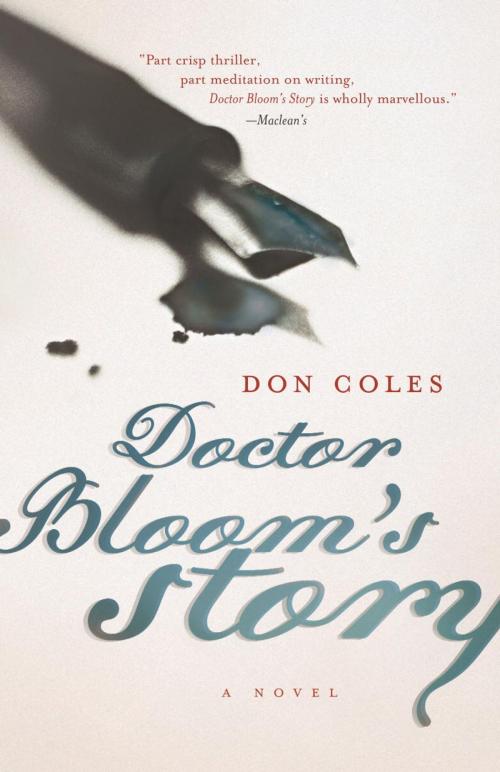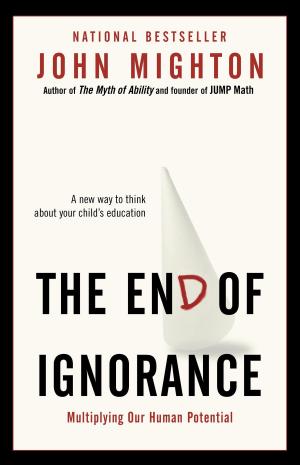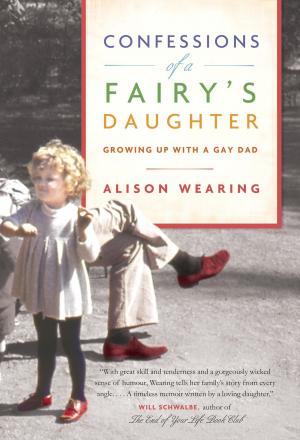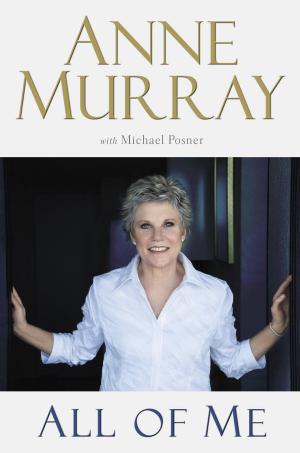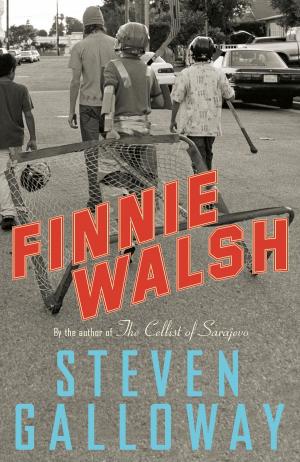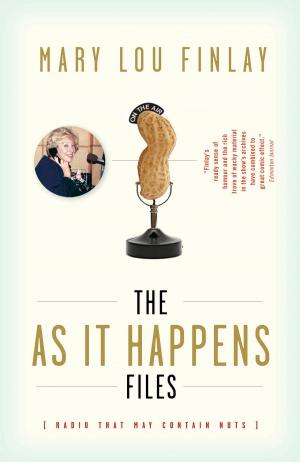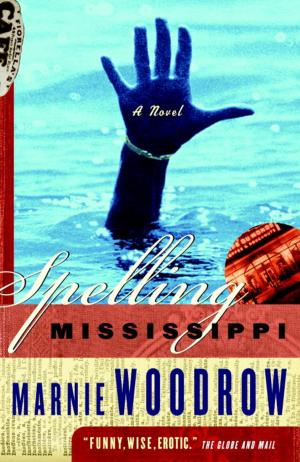| Author: | Don Coles | ISBN: | 9780307368805 |
| Publisher: | Knopf Canada | Publication: | October 22, 2010 |
| Imprint: | Vintage Canada | Language: | English |
| Author: | Don Coles |
| ISBN: | 9780307368805 |
| Publisher: | Knopf Canada |
| Publication: | October 22, 2010 |
| Imprint: | Vintage Canada |
| Language: | English |
Doctor Bloom’s Story, a wry and subtle novel, is a Knopf Canada New Face of Fiction selection for 2004 and already a popular and critical favourite. What starts off sounding like a charming, bittersweet memoir develops rapidly into a complex and moving book centred on a pressing moral dilemma.
In the first few pages, Dr. Nicolaas Bloom, cardiologist and would-be writer, describes his life’s trajectory: from medical and literary studies in Leiden, Holland, through practice and research in Cambridge to, following the death of his wife, a new life in uptown Toronto. Dr. Bloom’s story proper begins in a writing workshop, taught by his tough-talking neighbour Larry Logan: Bloom finds himself entranced by one of his young classmates, a quiet, self-possessed young woman named Sophie Führ.
The novel quickly establishes the rhythm it will pursue throughout, its present-day action in counterpoint with Bloom’s memories and reflections. Bloom works in a downtown medical clinic; he remembers his late wife and stillborn daughter; he considers his literary masters, most of all Chekhov; importantly, he meets Larry Logan’s estranged wife Marianne. Then, out for a run in a local ravine, he sees a woman being beaten up; he has reason to believe it is his classmate, Sophie.
As Bloom and Marianne Logan fall for one another, and Bloom tentatively pursues his long postponed writing, Sophie’s situation becomes more and more of a concern; soon it has drawn in Larry, Marianne and others, none of whom are able to step in and help her. This is in part because, complicating matters, Sophie does not appear to want to be “rescued.” As she puts it, speaking of herself in a coded, charged conversation in the writing workshop:
“She has a belief. She believes that there are circumstances which, although they may not appear happy, are part of a the deeper life…. it would be a mistake, she thinks, to leave these circumstances.”
Sophie’s husband, Walter Rollo Maggione, comes to Bloom for cardiac treatment. Abrasive and arrogant, some twenty-five years older than Sophie, he is a Swiss psychologist pursuing a doctorate at the University of Toronto, specializing in Jung. Meanwhile Marianne, a psychoanalytic psychotherapist, has come to care about Sophie as deeply as Bloom has.
Bloom and Marianne return from a brief Caribbean vacation to discover Sophie in the emergency room of Sunnybrook hospital, bruised and battered, claiming to have fallen down the stairs. Her husband has also been admitted, after an attack of angina. Attempts to intervene prove fruitless, but Bloom sees a way he could help Sophie: as Maggione’s physician, he is aware of the subtleties of his condition, aware that were Maggione to not have the right medication to hand at the right moment, his life could be in danger.
The novel’s central moral question gains shape: given all he knows about Sophie’s situation — about the violence and suffering she experiences, and her view of it as a kind of religious task — can Bloom justify “altering the odds”? Can he make it less likely that Maggione will pull through his next cardiac malfunction? Bloom’s dilemma, carefully examined and disentangled, will haunt readers of this supple and moving novel long after its resolution.
Doctor Bloom’s Story, a wry and subtle novel, is a Knopf Canada New Face of Fiction selection for 2004 and already a popular and critical favourite. What starts off sounding like a charming, bittersweet memoir develops rapidly into a complex and moving book centred on a pressing moral dilemma.
In the first few pages, Dr. Nicolaas Bloom, cardiologist and would-be writer, describes his life’s trajectory: from medical and literary studies in Leiden, Holland, through practice and research in Cambridge to, following the death of his wife, a new life in uptown Toronto. Dr. Bloom’s story proper begins in a writing workshop, taught by his tough-talking neighbour Larry Logan: Bloom finds himself entranced by one of his young classmates, a quiet, self-possessed young woman named Sophie Führ.
The novel quickly establishes the rhythm it will pursue throughout, its present-day action in counterpoint with Bloom’s memories and reflections. Bloom works in a downtown medical clinic; he remembers his late wife and stillborn daughter; he considers his literary masters, most of all Chekhov; importantly, he meets Larry Logan’s estranged wife Marianne. Then, out for a run in a local ravine, he sees a woman being beaten up; he has reason to believe it is his classmate, Sophie.
As Bloom and Marianne Logan fall for one another, and Bloom tentatively pursues his long postponed writing, Sophie’s situation becomes more and more of a concern; soon it has drawn in Larry, Marianne and others, none of whom are able to step in and help her. This is in part because, complicating matters, Sophie does not appear to want to be “rescued.” As she puts it, speaking of herself in a coded, charged conversation in the writing workshop:
“She has a belief. She believes that there are circumstances which, although they may not appear happy, are part of a the deeper life…. it would be a mistake, she thinks, to leave these circumstances.”
Sophie’s husband, Walter Rollo Maggione, comes to Bloom for cardiac treatment. Abrasive and arrogant, some twenty-five years older than Sophie, he is a Swiss psychologist pursuing a doctorate at the University of Toronto, specializing in Jung. Meanwhile Marianne, a psychoanalytic psychotherapist, has come to care about Sophie as deeply as Bloom has.
Bloom and Marianne return from a brief Caribbean vacation to discover Sophie in the emergency room of Sunnybrook hospital, bruised and battered, claiming to have fallen down the stairs. Her husband has also been admitted, after an attack of angina. Attempts to intervene prove fruitless, but Bloom sees a way he could help Sophie: as Maggione’s physician, he is aware of the subtleties of his condition, aware that were Maggione to not have the right medication to hand at the right moment, his life could be in danger.
The novel’s central moral question gains shape: given all he knows about Sophie’s situation — about the violence and suffering she experiences, and her view of it as a kind of religious task — can Bloom justify “altering the odds”? Can he make it less likely that Maggione will pull through his next cardiac malfunction? Bloom’s dilemma, carefully examined and disentangled, will haunt readers of this supple and moving novel long after its resolution.
